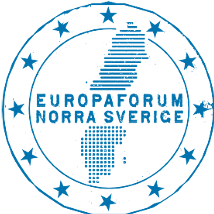Europaforum northern Sweden (EFNS) is a network for politicians at the local and regional levels from Norrbotten, Västerbotten, Jämtland Härjedalen and Västernorrland. EFNS is a meeting place and a knowledge arena for discussion and analysis of the impacts of EU policy on northern Sweden. EFNS monitors European issues to influence EU legislation, the EU’s strategies and action programmes and the EU’s budget. The objective of EFNS is to safeguard the interests of northern Sweden both in the European arena and in relation to the national level in matters with a clear European perspective.
The EFNS welcomes the ambition formulated in the RED II Directive, in the forthcoming delegated act linked to Article 27 (3) and the upcoming revision in RED III to increase Europe’s production of hydrogen but has concerns regarding some of the writings that may contribute to the opposite effect and slow down the transition.
- The principle of additionality should in its entirety make exceptions for regions and Member States with a big proportion and surplus of renewable energy in the electricity grids.
- The European Commission should clarify that the discussion on additionality does not concern the production of hydrogen for industrial application.
- The delegated act should not hinder the production of renewable hydrogen in northern Sweden with existing overcapacity of green electricity to enable the development and use of hydrogen-powered aircraft, trains, and heavy transport.
Countries and regions that already have a high share of renewable electricity must be excluded
Sweden is one of the countries in Europe with highest share of renewable energy in the energy grid and the northern part of Sweden has a surplus of energy from renewable sources. EFNS underlines that countries and regions that already have made major investments in renewable electricity production should be able to use that electricity for the production of renewable hydrogen and thus be exempted from the requirements defined in the delegated act. Under these circumstances, it should be sufficient for the electricity to be produced renewably for the hydrogen to be classified as renewable.
The Directive RED II Art. 27(3) declare that renewable production of renewable liquid and gaseous fuels of non-biological origin (for example hydrogen) can be produced with energy from a facility with direct connection or energy taken directly from the energy network. The directive’s regulations should also allow to classify hydrogen from electricity production from facilities older than 24 months as renewable. Also, the directive should not create unnecessary administrative burden for the industry, which would risk discouragement from investment in European hydrogen production.
Hydrogen for large-scale industrial application
Northern Sweden’s large industrial projects utilize hydrogen from renewable energy sources in novel production processes that will be a major contribution to the green transition with
great positive climate impact for the entire EU. To allow for these industrial projects to contribute to the green transition, the delegated act should clarify that the regulations presented in accordance with the RED II Art. 27(3) will not affect hydrogen produced for industrial application, now or in the future. Industrial application of hydrogen technology will indeed lead to an increased demand but will also bring significant climate benefits that must be considered and cannot fall under the same regulations as renewable energy for the transport sector. The regions of northern Sweden are the host of large private investments in green industry, which will play a crucial role in Europe’s ability to undergo the green transition. The regions are now preparing for planned investments of 1070 billion SEK, of which a large part will be invested in technology development and production capacity for hydrogen in industrial applications. Solely the investments in fossil-free steel will reduce Sweden’s total carbon dioxide emissions by 10% in a market-driven transition by utilizing green hydrogen produced in the region with the help of renewable electricity from hydro, wind and solar power. EFNS emphasizes that the delegated act should clarify that the regulations only apply to renewable energy for the transport sector, in accordance with the mandate given by Directive 2018/2001 (REDII) Art. 27(3).
Hydrogen for the transport sector
Hydrogen is expected to play a significant role in Northern Sweden’s transport infrastructure, which is characterized by a vast geography, a sparse population, and long distances to the market. The regions, municipalities and private actors in northern Sweden are already investing in infrastructure and R&I projects that will enable hydrogen-powered aircraft, trains, and heavy transport. The region’s existing production capacity of renewable energy will be utilized to produce renewable hydrogen to secure the transition to sustainable transports. EFNS underline that the regulations and requirements of the delegated act for new energy production capacity should not hinder the regions transition to sustainable transport by utilizing existing capacity.
Adopted by Europaforum Northern Sweden on 25 February 2022
Glenn Nordlund (S) Chairman EFNS Region Västernorrland
Åsa Ågren Wikström (M) Deputy Chairman EFNS Region Västerbotten
Jonny Lundin (C) Region Västernorrland
Erik Lövgren (S) Västernorrland Association of Local Authorities
Rickard Carstedt (S) Region Västerbotten
Ann Åström (S) Region Västerbotten
Nils-Olof Lindfors (C) Region Norrbotten
Britta Flinkfeldt (S) Norrbotten Municipalities
Anders Josefsson (M) Norrbotten Municipalities
Elise Ryder Wikén (M) Region Jämtland Härjedalen
Robert Uitto (S) Region Jämtland Härjedalen
Jonas Andersson (S) Municipalities in Jämtland County
Daniel Danielsson (C) Municipalities in Jämtland County
